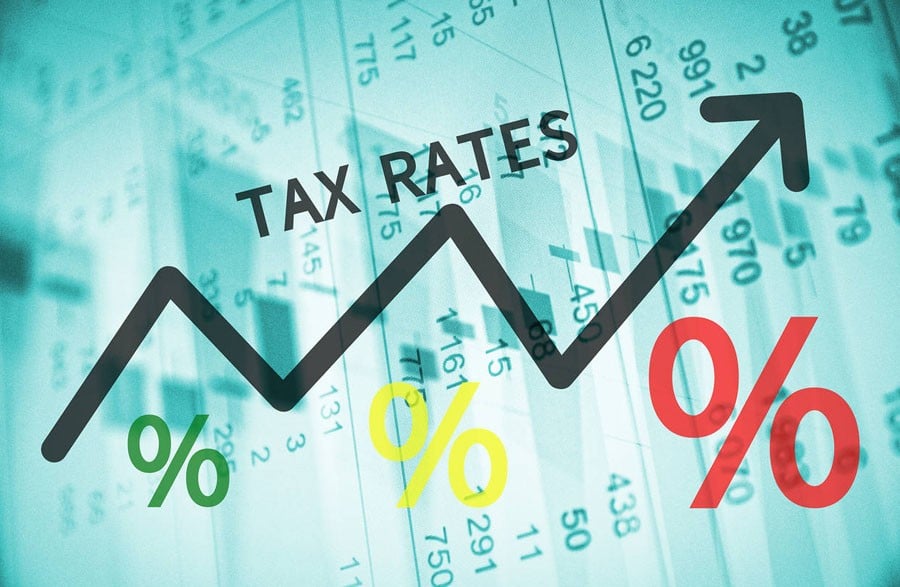
The 72nd ‘technocratic’ budget is no different from earlier ‘bureaucratic’ budgets

According to experts, Dr. Abdul Hafeez Shaikh, Advisor to Prime Minister Imran Khan on Finance, Revenue and Economic Affairs, and his team, did not have a choice but to present yet another conventional budget in the given circumstances to balance the books and meet many preconditions of the International Monetary Fund (IMF) for the proposed bailout package of US$ 6 billion. Considering these constraints, budget 2019-20 is loaded with heavy taxes and little effort to cut unproductive expenditures.
The revenue target fixed at Rs5500 billion is being widely criticised as too ambitious when the economy is in shambles and growth rate is dwindling. However, the main faultline of the budget is its failure to provide any long-term strategy for self-reliance -- boosting value added exports, collecting taxes as per real tax potential, right-sizing of monstrous government machinery and achieving growth rate of over 7 percent for a decade. In the absence of adequate resources available to the federal government and burgeoning debt burden, the main theme of the budget speech of Hammad Azhar, State Minister for Revenue, was first achieving fiscal stabilisation and then growth.
The crux of taxation proposals is to further crush the fixed-income groups and substantially increase indirect taxes (customs duty, sales tax, excise, etc, on a number of items, including items of common use as sugar and ghee). Strangely, after offering amnesty, no measure is included in the Finance Bill 2019 to confiscate untaxed assets if it is not availed. There is also absence of pragmatic measures for tapping the real tax potential by taxing the wealth of the rich, like imposing Income Support Levy as was done in 2013 but repealed the very next year.
The Finance Bill 2019 confirms that the rich and mighty would continue to retain and amass colossal wealth without paying due taxes. No new tax is imposed on them while major burden is shifted to the middle class, the poor and small businesses.
Sadly, the corporate sector is still burdened with many withholding tax provisions, freezing of rate of 29 percent for the next two years and enhanced turnover tax. The taxation scheme presented by the Government of Pakistan Tehreek-i-Insaf (PTI) is going to harm the SME sector and benefit only the rich.
By keeping higher sales tax rate of 17 percent intact, the bias against the middle class and the poor is shown as it takes larger slice of their income than that of the affluent segments. In Finance Bill 2019, there are no concrete measures to incentivise industralisation. Less investment in industry means less job opportunities. The Finance Bill 2019 could have provided tax breaks for industries and businesses creating new jobs and giving some percentage employment to women. This should have been the top priority, but is completely missing.
The PTI government in its first budget has failed to give concrete plans to overcome the main economic challenges faced by the country -- fiscal, trade, current account deficits, stagnation in industrial growth, etc. The 72nd ‘technocratic’ budget is no different from earlier ‘bureaucratic’ budgets. The budget 2019-20 contains the same old clichés about economic revival but, in fact, through erratic taxation working against it. It is a painful reality that during the Decade of Democracy (2008-18), the governments of Pakistan Peoples Party and Pakistan Muslim League (Nawaz) failed to initiate any fundamental reforms to overcome issues like resource mobilisation, social mobility, shortage of skilled manpower, non-availability of affordable power supply and rapid industrial and infrastructure development. The PTI Government made tall claims about these during election campaigns but now all these have been conveniently ignored.
The budget 2019-20 has failed to provide steps to bridge the huge tax gap that is more than 100 percent of actual collection. (Details in Taxes for growth, The News, November 8, 2015). The mighty sections of society do not pay due taxes, enjoy tax-free benefits and also get State lands at throwaway prices. The government, instead of taxing them and cracking down on undocumented economy and benami transactions, is offering amnesties and immunities as the mighty sections of society are engaged in these transactions.
Also read: At the cost of development
One of the main tools of tax policy is to increase the level of savings and capital formation in the private sector partly for borrowing by the government and partly for enhancing investment resources within the private sector for economic development. On the contrary, Pakistani economic managers have not only failed to achieve this goal, they are ruthlessly taxing capital gains arising out of immovable property and shares to destroy creation of capital and incentives for investment that can boost growth. Tax is a byproduct of growth. With more growth we would have more taxes. The prevalent anti-growth taxes are the real cause of retarded economic growth, burgeoning fiscal deficit and insurmountable debt burden.
There is a consensus that the existing tax policy has been stifling economic growth and widening the rich-poor divide. There was a hope that PTI would reformulate it to provide an equitable, pragmatic and investment-oriented environment, integrating efficient tax administration with simplified tax laws that are easily comprehensible and hassle-free from implementation perspectives. Unfortunately, this perspective is completely missing in the Finance Bill 2019.